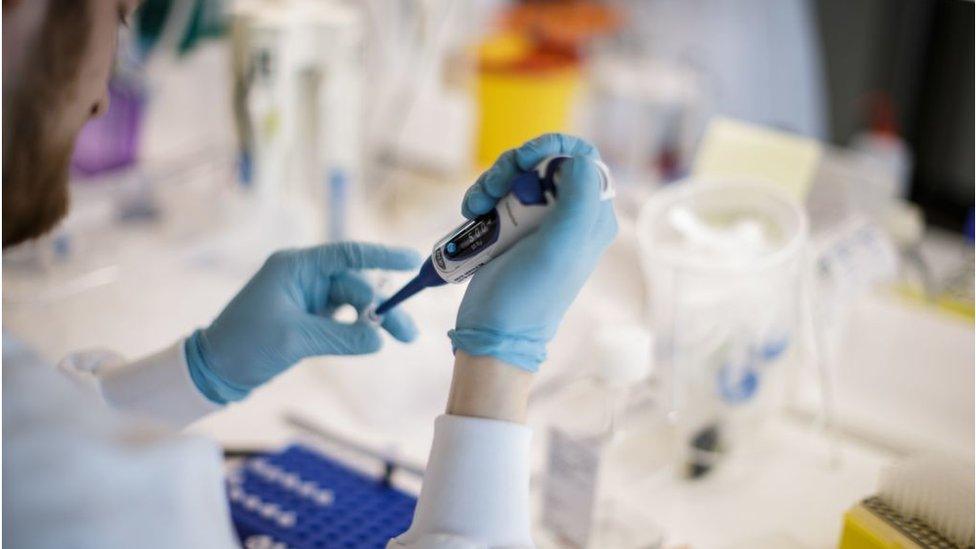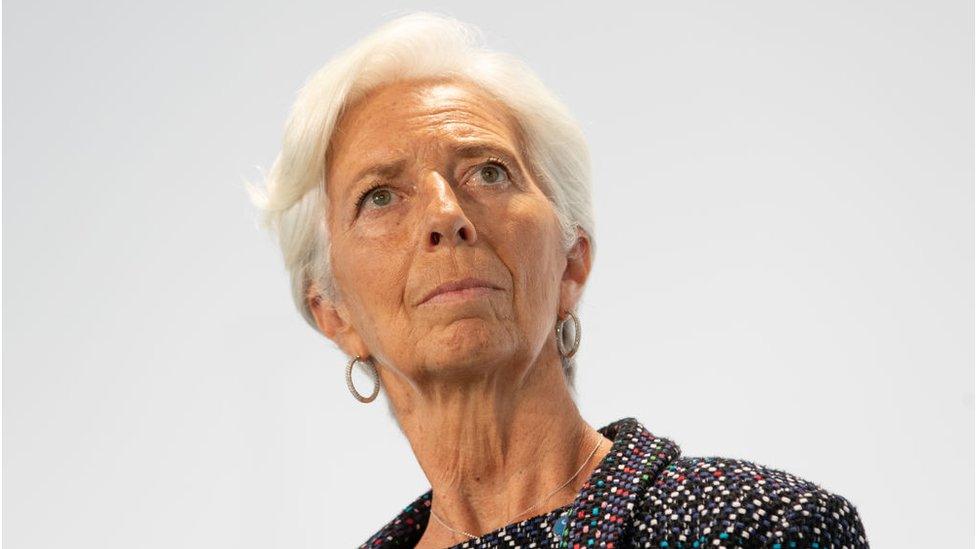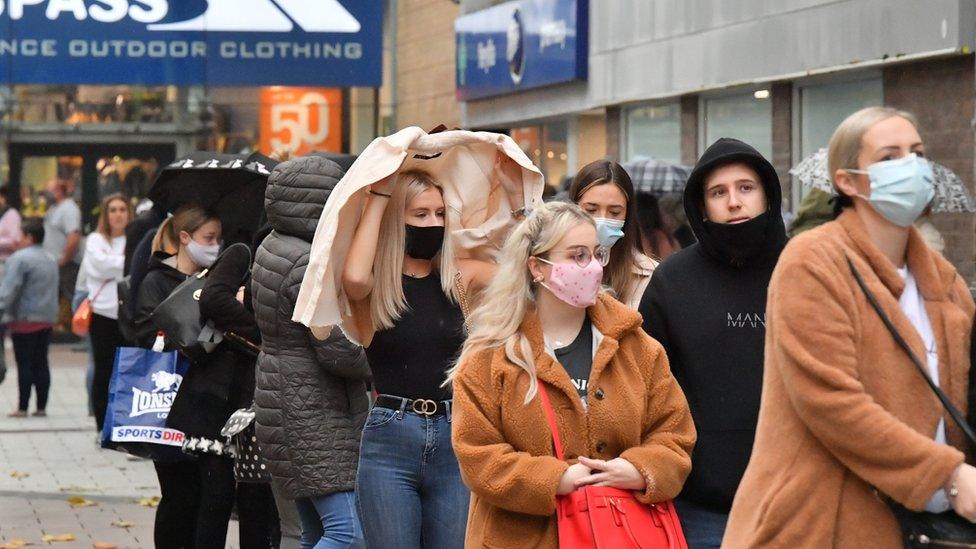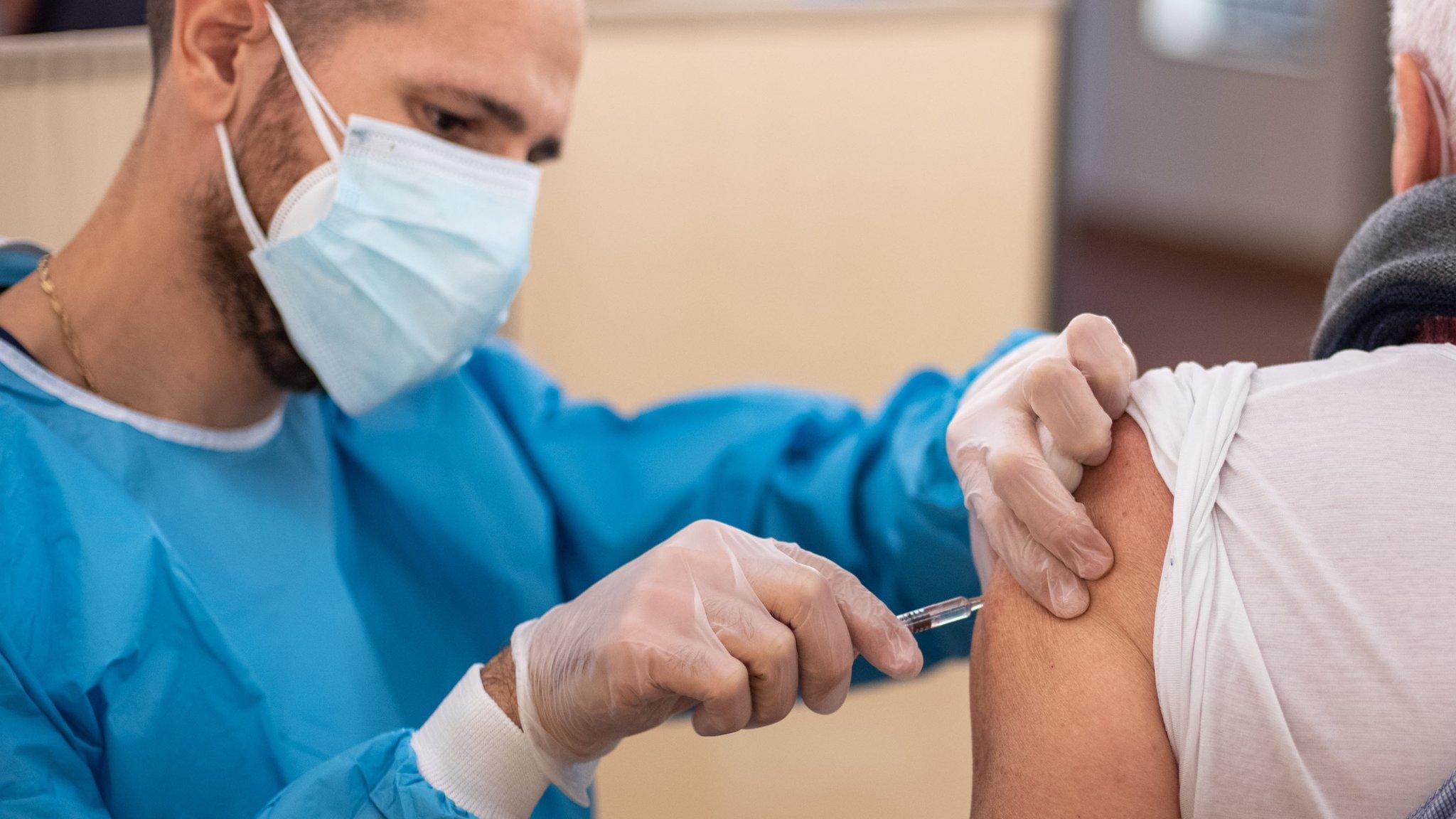Bank heads: Outlook uncertain despite vaccine optimism
- Published

US and European central bank chiefs have said that the global economic outlook remains uncertain despite some promising vaccine trials.
Fed chair Jerome Powell and ECB President Christine Lagarde said the economy was still in for a tough time.
This is despite the development of a potential vaccine by US drugmaker Pfizer and German partner BioNTech.
Bank of England chief Andrew Bailey said he felt "very uncomfortable" with the amount of coronavirus uncertainty.
In a panel discussion with US Federal Reserve Chair Jerome Powell and Bank of England Governor Andrew Bailey, Ms Lagarde said: "From a huge river of uncertainty, we see the other side now."
"But I don't want to be exuberant about this vaccination because there is still uncertainty" about the production and distribution of the vaccine, she added.
Mr Powell echoed her, saying the vaccine results were "good and welcome news" but it was "too soon to assess with any confidence the implications... for the near term".
Mr Bailey said he felt "very uncomfortable" at the huge amount of economic uncertainty created by Covid-19.
"We are living in a world of huge uncertainty and unpredictability, and I don't like to say that," he said. "It's a very, very difficult place to be in."
Earlier on Thursday, Mr Bailey told a Financial Times event that he was encouraged by the latest Covid-19 vaccine developments, which reduced economic uncertainty.
This week stock markets soared due to hopes of a potential breakthrough in the search for a vaccine against Covid-19.

Christine Lagarde said she doesn't want to be 'exuberant' about the vaccine
With the eurozone likely to be heading back into recession this quarter, the ECB has already said it would provide more stimulus in December, probably through its pandemic emergency bond-buying programme and through more favourable loans to the bank sector.
The US economy has recouped just over half the 22 million jobs lost since businesses began reopening after the first shutdowns in March, supported both by extraordinary Fed support and the first tranche of about $3tn in pandemic relief.
But the recovery has been uneven, and the subsequent waves of the virus threaten to make it more so.
- Published12 November 2020

- Published9 November 2020
